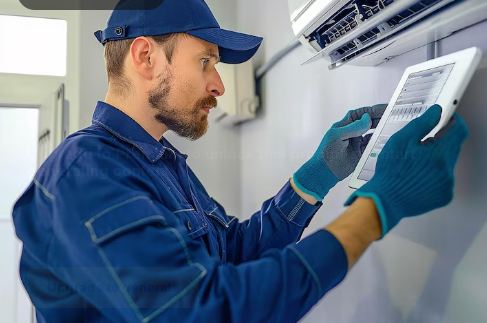The longevity of an air conditioner (AC) depends on factors like the type of AC, quality of installation, maintenance, and environmental conditions. However, several factors determine how long an AC can remain functional and efficient. Why you need a professional Residential HVAC contractors near me. Below are key points that will help you understand how to prolong the lifespan of your AC and when it may be time for a replacement.
How Long Does An Air Conditioner Last? Residential HVAC Contractors Near Me
An air conditioner can last for a long time—up to 15–20 years or more—with proper care. Although it is possible for an AC to last beyond 20 years, this is rare without constant repairs and maintenance. My AC unit lasted for long with some guidance from residential HVAC contractors near me. However, technological advancements in energy efficiency mean newer units will often be more cost-effective in the long run. If an old AC is still functional but struggling, it may be worth considering a new energy-efficient model.
Key signs that indicate it’s time to replace your air conditioner:
If your AC requires multiple repairs in a short period, it’s likely more cost-effective to replace it. Repairs for components like the compressor or evaporator coil can be expensive and signal deeper issues. If the repair cost is more than 50% of the AC’s current value, replacement is usually recommended. For replacing contact our expert residential HVAC contractors.
Poor Cooling Performance
The AC takes longer to cool your space or doesn’t reach the desired temperature. Some rooms may remain hot while others are over-cooled (if using a ducted system). Worn-out parts, refrigerant leaks, or reduced compressor efficiency are the possible causes of such poor performance. That’s why regular AC repair is so crucial for you.
Rising Energy Bills
If your energy bills are increasing without changes in your usage, it could mean your AC is running inefficiently. Older units tend to consume more energy than modern, energy-efficient models (with higher SEER ratings). Upgrading to an energy-efficient model can reduce cooling costs by up to 30%. For upgradation of your AC Residential HVAC contractors help you out.
Age of the Unit
Most AC units have a lifespan of 12–15 years (split systems) or 15–20 years (central systems). After this period, even well-maintained units may struggle to work efficiently. Replacing an old AC before it fails completely can save on emergency repair costs.
Use of Outdated Refrigerants (R-22)
Older units may use R-22 refrigerant, which is now being phased out due to environmental regulations. Repairing these units becomes expensive since R-22 is scarce and costly. On the contrary, New ACs use eco-friendly refrigerants like R-410A or R-32.
Strange Noises or Smells
Loud banging, grinding, or squealing noises may indicate major internal failures (like the motor or compressor). Foul smells could indicate mold or electrical issues inside the unit. While some noises can be fixed, persistent issues often signal it’s time for a replacement.
Excessive Humidity and Moisture Issues
If your AC can’t maintain comfortable humidity levels, it may no longer be working efficiently. Leaking refrigerant or condensation around the unit is also a red flag.
Frequent Thermostat Adjustments
If you constantly adjust the thermostat but still feel uncomfortable, the AC may no longer regulate temperatures properly. This could also indicate issues with sensors or ductwork. To get rid of this issue get a help from residential HVAC contractors will
Short Cycling
Short cycling happens when the AC turns on and off repeatedly without completing a full cooling cycle. It puts excessive stress on the compressor, leading to early failure.
Visual Wear and Tear
Physical signs like rust, cracks, or corrosion on the unit’s components indicate the AC is at the end of its lifespan. Such damages can also impact the safety of continued operation.
If you notice several of these signs, replacing your air conditioner may be the smarter option, especially if it’s older and inefficient. Keeping an eye on such signs since the beginning of your AC installation really pays in the long run. While repairs can fix minor issues, a new, energy-efficient model will provide better performance, lower energy bills, and fewer headaches in the long run. For replacing and contact our expert residential HVAC contractors.

